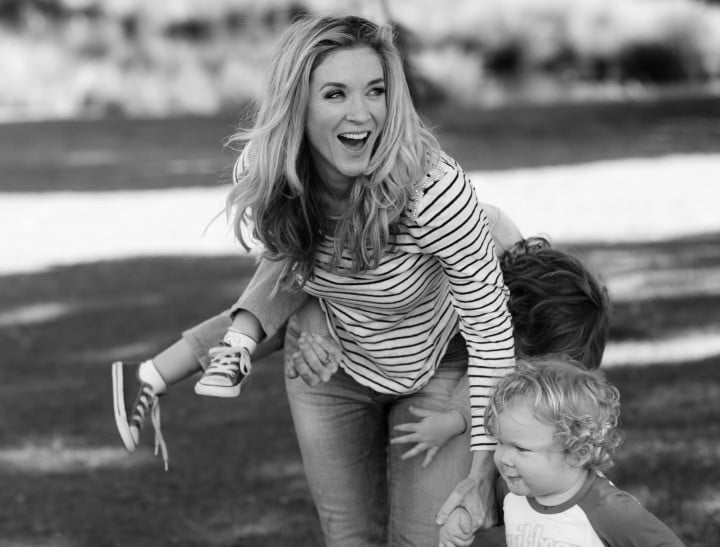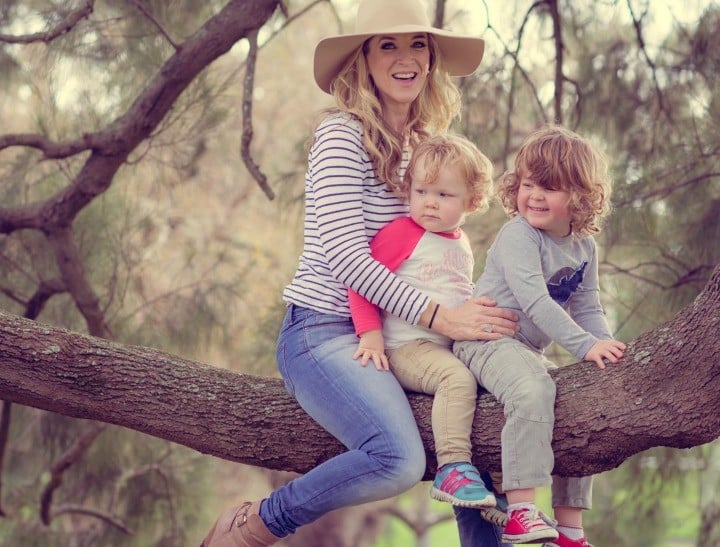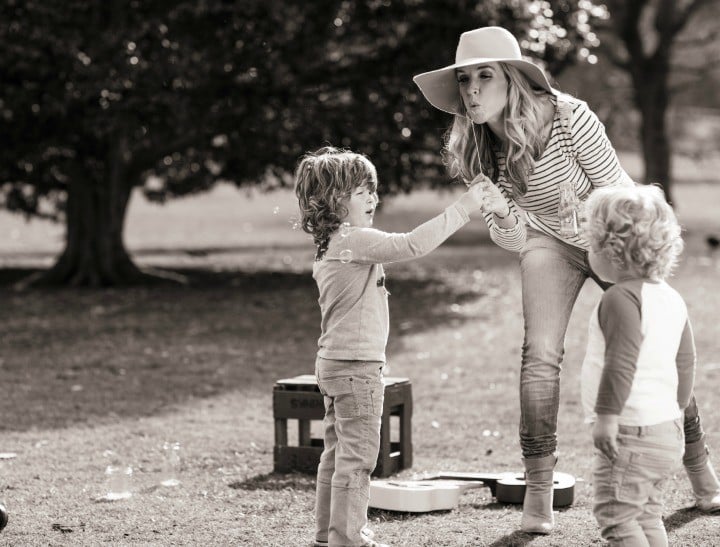
There is a criteria for those who are qualified to talk about motherhood. Just being a mother in itself doesn’t cut it.
Journalist Jacinta Tynan blew apart the parenting community back in 2010 when she wrote a column (called ‘The Big Easy’) about how she finds motherhood a ‘breeze’ and doesn’t understand what all the fuss is about. You can read that post here.
Her article hit like a nuclear bomb. Jacinta was flooded with hundreds of comments with readers furious with the suggestion that motherhood wasn’t one very tough gig.
Jacinta, now the mother of two young sons, has just written a book about her mothering experience (so far) called Mother Zen, exploring why some of us find being a mother so joyous and trouble free, while so many others are up against it.
Here is an edited excerpt from Mother Zen:
One thing I learned from being the focal point of a mass mother meltdown was that for some women motherhood is an exclusive club. According, at least, to a considerable number of the mothers who comment on online portals, there are criteria for those who are qualified to say anything on the topic. Just being a mother in itself doesn’t cut it.
You can’t possibly know what you’re talking about unless your baby is one, two, started school, or reached puberty. You must have more than one baby, preferably two, four or, better still, six. Don’t even think about chiming in unless you’re a stay-at-home mum, according to some. Or work and juggle childcare, according to others. One woman suggested I wouldn’t have any idea about being a parent until my child had left home, got married and had children of his own. Which leaves a very narrow sample of those deemed to have a legitimate opinion on motherhood! Best you keep mum.




Top Comments
This is all such a little kid storm in a teacup. When your kids become teenagers all this stupid bitchy nonsense goes away. Actually it goes away sooner. You don't see parents of 12 year olds, let alone 16 year olds gossiping about who is the better mother because they breast fed and who is having the 'more authentic experience' because they're not working.
In fact, parents tend to have much more solidarity as their teenagers are learning to drive, facing the end of high school, dealing with issues such as alcohol and sex, so the support of others doing the same thing is always welcome.
Great article. I didn't read the first one, but at least Jacinta has recognised that we all, herself included, need to be less judgmental. I have had 2 children by caesarian, one breach, the other emergency, as he was critically ill, and I was once told that I haven't birthed anything. I couldn't breastfeed, and had no problem with formula feeding my babies, yet other mothers seem to have a problem with my doing so. Why do we all have to pass judgment or feel anyone's doing a better job than anyone else? Motherhood is not a competition between women. I work - my children went to daycare when they were small. My best friend had drug free vaginal births, breastfed, didn't work, and stayed at home with her children 24/7. Both our children tell us that we are the "Best Mum in The World", and we are - to them. As long as what you do works for you, and for your child, it's all great. Mums come in all types, shapes, colours, as do children. Some kids are easier to parent than others. Some Mums were born to be parents, for others it really is a "labour" of love. None of us own the role exclusively. Celebrate our differences. We all have different personalities, so the experience is going to be unique for every parent, and shouldn't be compared to anyone else. Some Mums whinge, some are haters, some genuinely struggle and some will be blissfully happy, and that shouldn't lessen or demean your experience in any way. I received the best advice as a new mum from a nurse in hospital on Day 3 after my son was born - I was becoming overwhelmed from contradictory advice from families, friends and nursing staff. The young nurse told me "Don't follow anyone else's path. You can listen to advice, but go with what feels right for you. No one knows your baby like you do. They've done one shift with a baby that's not theirs, or they had babies themselves, who were THEIR babies, not YOUR babies. You life is not theirs. Listen to what worked for them back then, but it might not work for you now, and that's OK. You will not always be happy, and sometimes it will feel very hard, but you will find your own way." And I did. Sometimes it was a breeze. Sometimes it really sucked. To all the mums out there, if you love your kids, if you try your best, you are the best mum in the world.
Preach! Your story sounds so much like mine! Fantastic post.